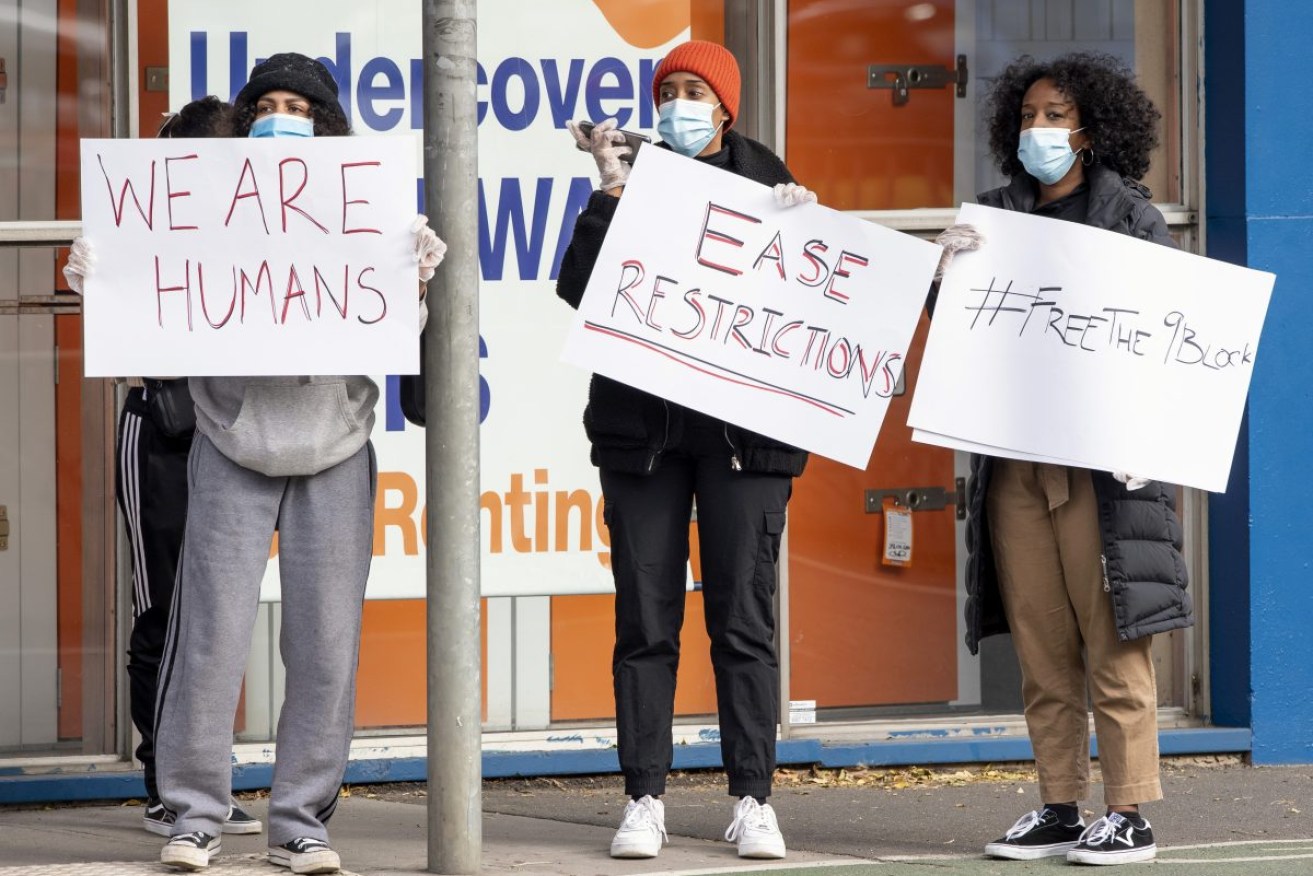Survey measures toll of COVID pandemic, lockdowns
Nearly half of Australians say the pandemic significantly reduced their quality of life.

Women hold signs outside housing commission apartments during one of Melbourne's lockdown in 2020. Photo: AP/Andy Brownbill
Melbourne had the highest proportion of people affected with about 33 per cent of those aged 15 and over reporting their lives changed for the worse.
The Victorian capital’s brutal COVID-19 lockdown lasted 245 days and for many people, their quality of life deteriorated during this time, new research shows.
This is compared to 25 per cent of people in non-urban Victoria, 21 per cent in urban areas of Victoria other than Melbourne, and 16 per cent for the country as a whole.
Various factors such as a decline in mental health, job insecurity and disruptions to education were cited as the cause, according to a survey by the University of Melbourne.
The Household, Income and Labour Dynamics in Australia survey found 45 per cent of respondents nationwide thought their lives were negatively impacted during the first year of the pandemic.
Melburnians, who endured one of the world’s longest lockdowns, along with single parents and people with disabilities were among those most affected by the health crisis.
Additionally, nearly one in 20 workers across the country reported losing their job and Victoria had the highest reported rate of job termination at 5.3 per cent.
Mental health significantly declined during COVID, particularly among women due to factors like working from home and the loss of social support and connections.
Lead researcher and University of Melbourne Professor Roger Wilkins said ultimately, the survey showed adverse health effects of COVID-19 were not restricted to people who got sick and died.
“There’s certainly cause for some alarm,” he said.
“We’ve already been seeing a trend in mental health decline, particularly amongst young people and that really accelerated in 2020. That potentially has many terrible implications going forward for wellbeing and demands on the health system.”
There were reported changes in spending habits on alcohol and tobacco, with an eight per cent increase in spending on alcohol and a 15.6 per cent rise in spending on tobacco in 2020.
Nearly one-third of tertiary students across the country reported an interruption of their studies during COVID-19, while about 49 per cent of Victorian students experienced an unforeseen interruption.
-AAP




